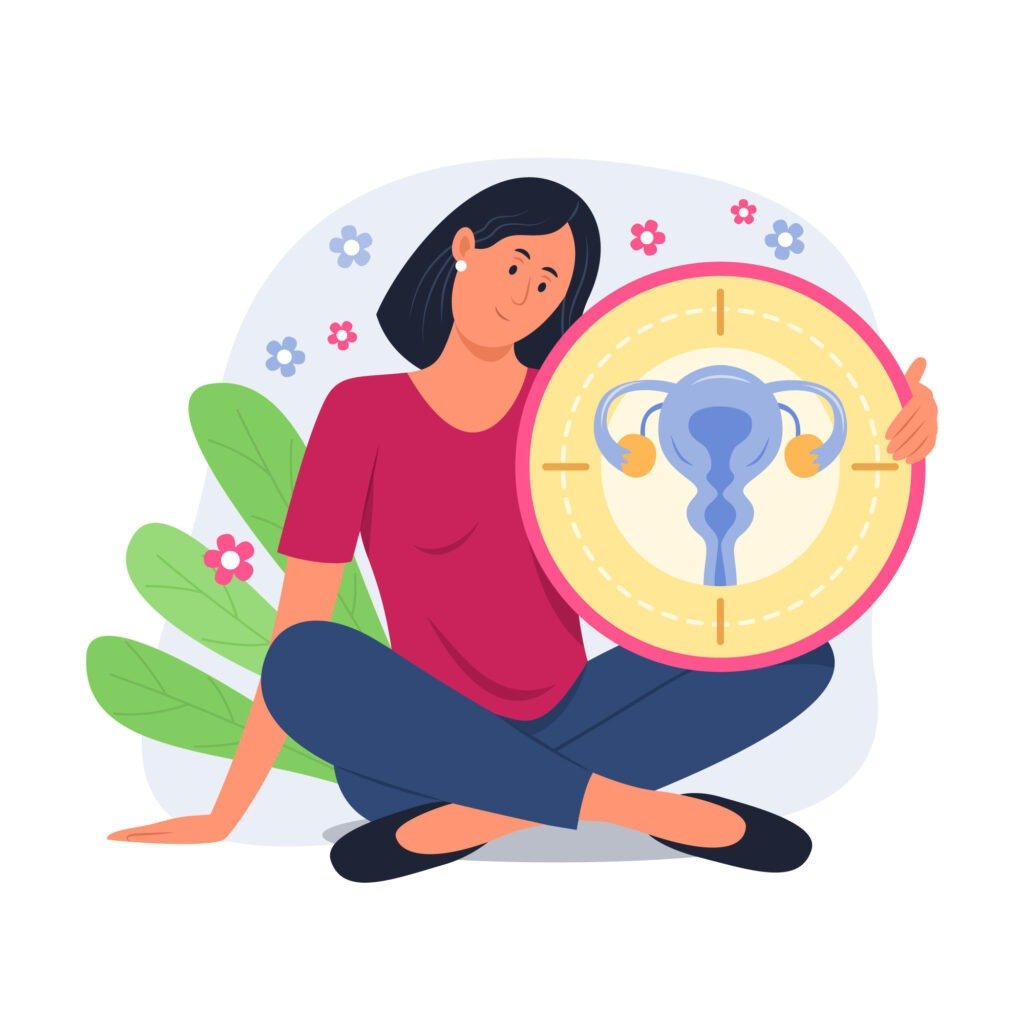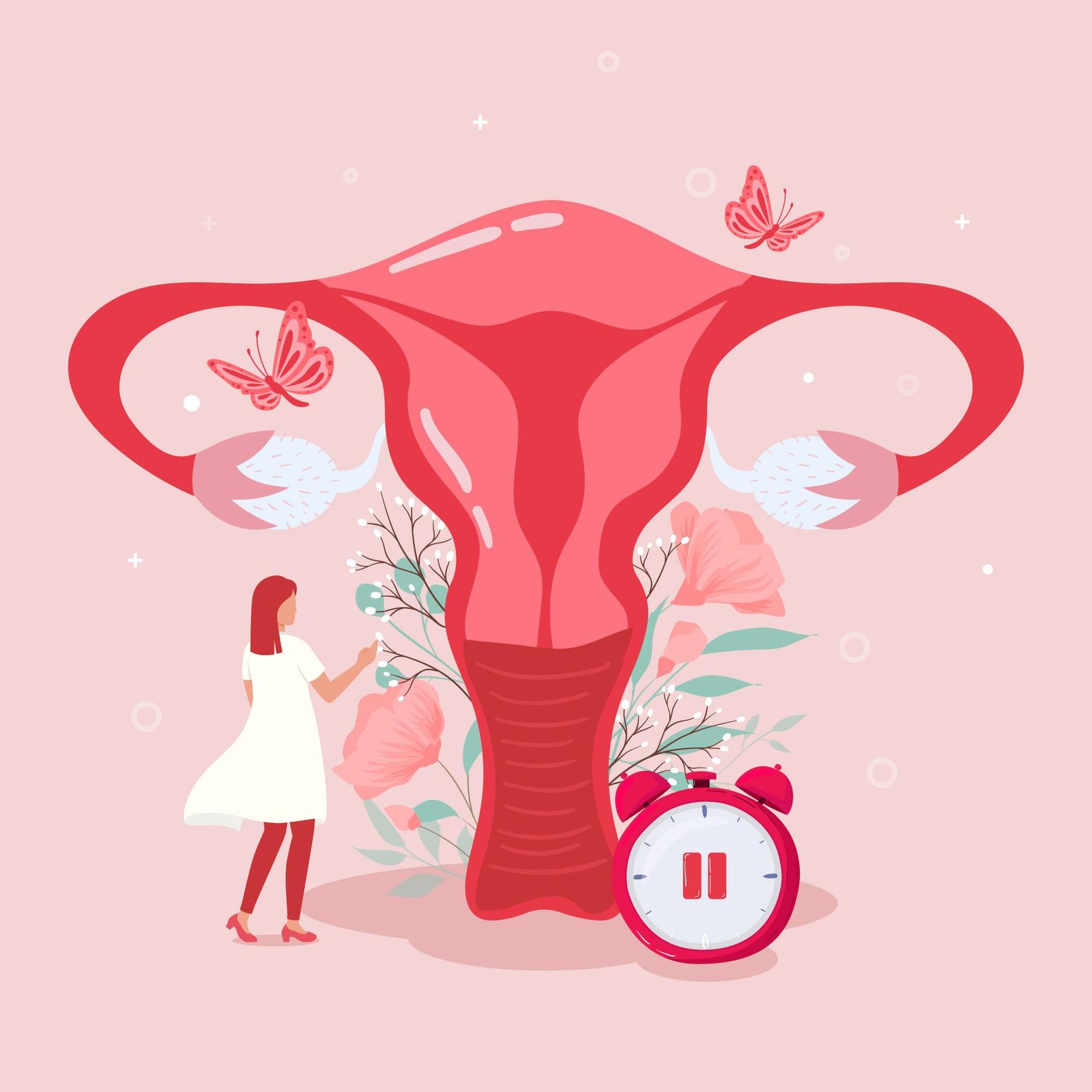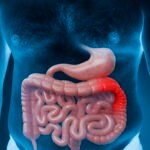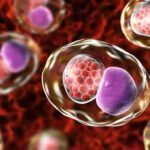Menopause is the permanent cessation of the menstrual period. Menopause is a natural part of life, it usually happens more or less in the mid-40s to late 50s, signaling the end of the fertile phase of women. The word “menopause” means the end of the monthly menstrual cycle, the natural permanent change from the reproductive to nonreproductive phase in the human female. The average age of natural menopause is 51-52 years of age.
- What are the stages of Menopause?
- What is the cause of menopause?
- What are the symptoms of menopause?
- How we can diagnose menopause?
- What are the treatments for menopause?
- What are the complications or health problems after menopause?
- How to manage menopausal symptoms?
- How do I i know am experiencing menopause?
- Is Hormone therapy the right treatment for every woman?
- Why does menopause affect sexual desire?
What are the stages of Menopause?
The menopause transition occurs over months and years, menopause is commonly divided into these stages.
Perimenopause
This is the starting stage as menopause starts to happen, women begin to experience mood changes, hot flashes, irregular vaginal bleeding, or irregular menstruation. In this stage hormone levels rise and fall unevenly and women even still experience menstruation. During this time it is still possible to get pregnant. It often begins after the mid-40s and can last a few months to years.
Postmenopause
When women experience a stoppage of the menstrual cycle for more than one year or when 12 months have passed since the last period, then women have reached postmenopause. In this woman ovaries no longer release ovarian eggs. Production of estrogen decreases from ovaries and no production of progesterone occurs in the ovaries of women.
What is the cause of menopause?
The causes of menopause are as mentioned below:-
Hormonal cause
The body regulates periodic chances and this is done by hormones, as time reaches particularly the ovaries stop producing reproductive hormones that are estrogen and progesterone. Persistent low level of estrogen and progesterone indicates no maturation of the ovarian egg and permanent cessation of the menstrual cycle.
Genetic factor
In menopause, genetic factors are also an important cause. the women’s menarche ( start of the first menstrual cycle), menstrual period, frequency of menstrual cycle, and menopause all are determined by our genetic coding.
Primary ovarian insufficiency
When ovaries fail to produce normal levels of reproductive hormone, if this happens before the age of 40 is considered as premature menopause, but often no cause for primary ovarian insufficancy can be found. approximately 1 percent of women face premature menopause.
Induced menopause
It is the surgical removal of the ovaries (oophorectomy) in ovulating women because of certain medical conditions like ovarian cancer, ovarian torsion, ovarian cysts, etc. In this, both ovaries with uterus are removed and sometimes only both ovaries are removed. By this oophorectomy, immediate menopause occurs.
Effect of radiation therapy
The later effect of chemotherapy and radiation therapy can result in menopause. If an ovulating oven takes chemotherapy may result in menopause within 3-6 months. Sometimes treatment of childhood cancer can also result in early or premature menopause.
What are the symptoms of menopause?
The symptoms of Menopause vary from one to another women, it is a personal experience of women, some women may experience few symptoms, some experience no symptoms, while others may experience multiple physical, psychological, and emotional symptoms like.
- Irregular vaginal bleeding.
- Hot flashes.
- Night sweats and palpitations.
- Vaginal dryness.
- Pain during sexual intercourse (dyspareunia).
- Vaginal infections.
- Reduced libido ( desire of sexual activity).
- Breast changes, tenderness in the breast.
- A sudden increase in heartbeat.
- Urinary tract infection.
- Reduced bone mass.
- Skin changes dryness in the skin, and skin bruises easily.
- Insomnia ( reduction in sleep).
- May experience emotional changes, mood swings, anxiety, depression, memory problems, poor concentration, and irritability.
- Increased frequency of urination.
- Weight gain.
- Hair growth in the face, underarms, hips, and thighs.
- Stiffness in joints.
- Osteoporosis which is decreasing in bone density becomes porous and fragile.
How we can diagnose menopause?

Menopause is diagnosed based on symptoms a woman experiences. A complete medical history and physical examination are taken by a physician to diagnose the cause of menopause.
Medical history
Medical history is taken about previous medical conditions, and any history of drug therapy like chemotherapy, or radiation therapy.
Physical examination
In this, we do different tests like Blood tests for the level of follicle-stimulating hormone (FSH) and estrogen. As menopause occurs FSH levels increase and estrogen level decreases.
There are some other tests related to menopause as mentioned below:-
- A pap smear test is done to check for cervical cancer.
- Mammography is done to check breast cancer.
- Blood cholesterol level is checked to detect heart disease risk.
- DEXA (dual energy x-ray absorption ) scan is done to measure bone mass loss.
Other tests are also done to detect risk factors like:-
- Thyroid function test.
- liver function test.
- Kidney function test.
- Urinary test.
- Hormonal test like testosterone, progesterone, prolactin, chronic gonadotropin test.
What are the treatments for menopause?

Treatment of menopause is done to reduce symptomatic distress by medicinal treatment.
Hormonal therapy
It is also referred to as postmenopausal hormonal therapy, in this use of estrogen and progesterone or a combination of estrogen and progesterone is given to ease the symptoms. The hormonal are available in many forms like
- oral pills.
- vaginal cream.
- vaginal ring inserts.
- implants
- injection.
- skin patches.
Natural hormonal therapy
In this, the medications containing estrogen and progesterone are made by organic plants. In this medication contains hormones that have the same chemical formula as those made naturally in the body. The hormones are created in a laboratory by altering compounds derived from naturally occurring plant products. This natural hormonal method is also called bioidentical hormone therapy.
Non-hormonal medications
Physicians may recommend bisphosphonates, nowadays bisphosphonates are effectively working on reducing the risk of osteoporosis or bone mass loss, by this risk of fracture is reduced to some extent.
Oral contraceptive pills
These pills are given to women in the perimenopausal phase to manage irregular vaginal bleeding, these pills also contain hormones.
Vaginal estrogen
Vaginal estrogen is given in the form of vaginal tablets, and vaginal cream to treat the dryness of the vagina. In vaginal estrogen, a small amount of estrogen is released by tablets or creams that are absorbed by vaginal tissue to relieve vaginal irritability, discomfort with intercourse, and some urinary symptoms.
What are the complications or health problems after menopause?
Menopause problems are different in every woman some face more discomfort and some have mild problems all depending on personal body function. complication includes
- Osteoporosis
- Urinary incontinence
- Weight gain
- Mood changes
- Sexual dysfunction.
- Vulvovaginal atrophy.
- Heart disease or blood vessel disease.
- Dyspareunia.
How to manage menopausal symptoms?
There are many approaches have been promoted as aid in managing the symptoms of menopause like
Diet management
Use of phytoestrogen, estrogen occurs naturally in certain foods. There are two main types of phytoestrogen that is isoflavones and lignans. isoflavones are found in soybeans, chickpeas, and other legumes. Lignans are found in flaxseed, whole grains, fruits, and vegetables. The natural estrogen in the food can relieve hot flashes.
Extra supplements
Add extra supplements to daily nutrition like
- vitamin D and calcium supplements for bone strengthening.
- vitamin E supplements provide relief from hot flashes.
Black cohosh (Remifemin)
It is an herbal supplement that reduces hot flashes. Black cohosh has been used widely in Europe for treating hot flashes and has been popular among women with menopausal symptoms in the United States
Skincare
Use a moisturizer daily to reduce skin dryness.
Vaginal care
Vaginal care is maintained to reduce the risk of vaginal infection (due to a reduction in the production of natural body vaginal fluid) and the use of vaginal cream to lubricate the vaginal canal.
Maintaining good sleep
Sleep disturbance is a major symptom of menopause, try to get good sleep and engage yourself in daily activities that may help in good sleep, if you are facing more trouble sleeping consult to physician.
Mental health management
The change of body from the reproductive phase to the nonreproductive phase causes many mental instabilities like anxiety, stress, depression, and mood swings, these can be managed by talking to people near you and sharing your experience with those who have already faced menopause. Do not feel discomfort because emotional changes are very common in menopause every woman faces this at her menopausal stage.
If you want to know more about mental health click here Mental Health
Hot flashes management
- every woman experiences some extent of hot flashes, we can manage hot flashes by
- Dressing clothes in layers so that we can remove clothes when hot flashes occur
- Drink a cold glass of water or fruit juice.
- Try to keep yourself in an open space so that air should pass during hot flashes.
- Avoid foods like spicy food, and extra fat food that create extra heat in the body.
Heart health
After menopause, women are at high risk of having heart disease. female reproductive hormones prevent females from heart disease after menopause Females have to take extra measures regarding heart health like regular blood lipid profile checking, regular heart health consultancy from a physician, avoiding smoking and alcoholic beverage consumption
LDL Cholesterol Symptoms, Cause, Treatment
Weight management
weight can be managed by physical activities like exercise, walking, cycling, yoga, and other fun physical activities like trekking, it can help manage weight and also freshen your mood.
Complimentary and Alternative Medication
According to National Center for Complementary and Alternative Medicine other nonprescription techniques may relieve the symptoms of menopause, these are techniques including
- Medication.
- Acupuncture.
- Hypnosis.
- Biofeedback.
- Deep breathing exercises.
- Paced respiration.
How do I i know am experiencing menopause?
The specific symptoms experienced by women in their late 40s and early 50s can indicate menopause like irregular menstrual cycle, hot flashes, night sweats, palpitations, and sudden increase in facial hairs. Sometimes other conditions like pregnancy, thyroid hormone problems, PCOD, and ovarian tumors, this condition can be mistaken as menopause, if it is premature menopause. Women should consult to gynecologist to confirm menopause.
Is Hormone therapy the right treatment for every woman?
Hormonal therapy or hormone replacement therapy is used as a treatment for menopausal symptoms, in this hormones that the body has stopped making, are externally given to the body through patches, tablets, and vaginal creams. It is not recommended for all it depends on women if they want to take hormone therapy. Some females experience mild menopausal symptoms in this case there is no need for hormonal therapy.
Why does menopause affect sexual desire?
In menopause, our ovaries stop producing reproductive hormones that are estrogen, and progesterone which are responsible for our vaginal fluid secretion in the vaginal canal and sexual desire, because of the low level of hormones it results in low sexual desire in women’s bodies.


